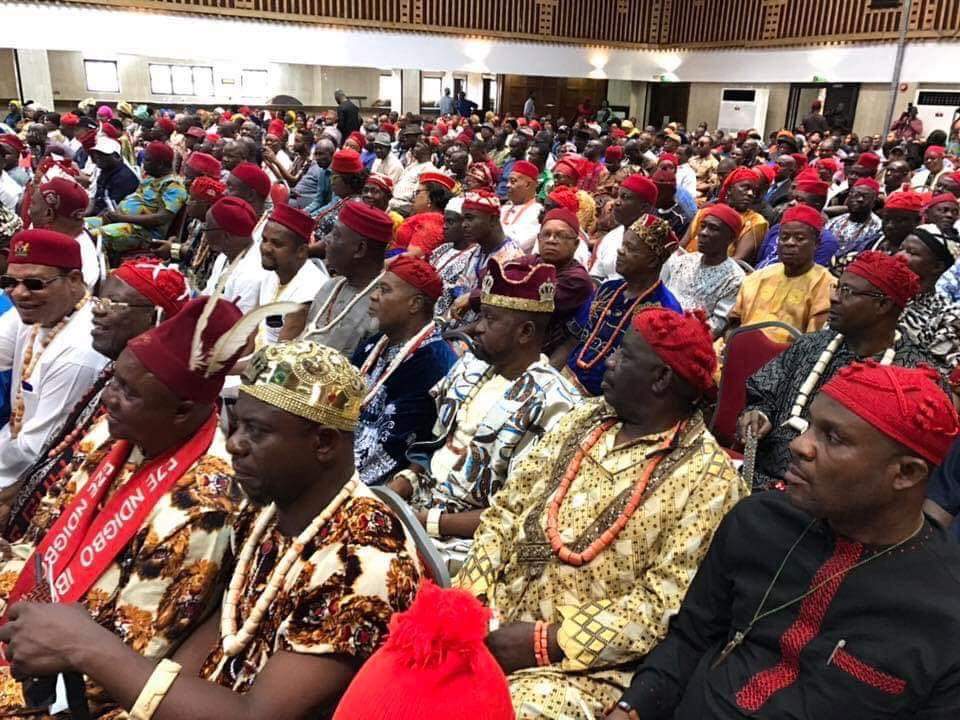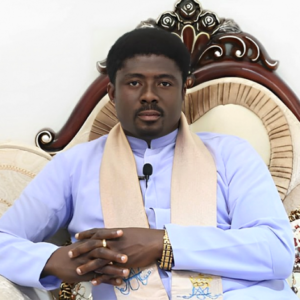
How feasible is the Igbo’s quest for power shift in 2023? Is the Southeast geo-political zone chasing shadows again? How realistic is the permutation?
It is a sensitive issue. The competition is stiff. It is because the Presidency is too powerful. Also, its occupants often lack national outlook. The power-loaded centre is cast in nepotism. The component units, in the absence of the federal principle, are paupers under the unitarist structure
All the six zones, now aptly demarcated into two broad regions, North and South, are scheming for the Presidency. The constitution does not exclude any zone in the scramble for federal power. Zoning may later be predicated on zonal strategies of consultation, dialogue, persuasion and mobilisation.
The reality is that no zone can solely win the battle for power shift without the involvement of other zones, or at least, two or three zones. The struggle for zoning is also better coordinated within political parties, and not on the platforms of socio-cultural organisations that may not be influential on the major parties.
Southeast seems to evoke empathy, not because of it’s boring and unsubstantiated claims of political marginalisation; the same tool that had been used by other regions while making the same claims; or its claim that it has not been properly reintegrated in post-civil war period. While the Northwest has seven states and Northeast, Northcentral, Southwest and Southsouth have six states, Southeast has five states.
Although Southeast has played key roles in mainstream politics in the first, second, and aborted third republics, and now, the Fourth Republic, majorly as the second fiddle and partner in the Federal Government, the ultimate and highest office has eluded the region.
On four occasions, the region had gazed at the Presidency in vain. Its strategies, in part, became its albatross. When the late Chief Obafemi Awolowo from the Southwest approached the Southeast Leader, Dr. Nnamidi Azikiwe, for a collaborative effort that would have made him the Prime Minister, with Awolowo serving as minister of finance, Zik turned his back. He preferred an alliance with Bello/Balewa that made him a ceremonial president between 1960 and 1966.
During the 1966 coup, when the Council of Ministers wanted to suggest Dr. Ozumba Mbadiwe as replacement for Prime Minister, following the gruesome murder of Alhaji Abubakar Tafawa Balewa, the Army Commander, Gen. Thomas Aguiyi-Ironsi, who was from the Southeast, disagreed as he hijacked power for himself.
In the Second Republic, when Dr. Alex Ekwueme was vice president, there was no assurance that President Sheu Shagari would have handed over power to him. The ruling National Party of Nigeria(NPN) chairman, the late Chief Adisa Akinloye, was already warming up for succession in 1987.
Although Ekwueme had hoped to bounce back in 1999, the rainbow coalition of Generals, in deference to the hues and cries in the Southwest about the June 12, 1993 presidential election annulment, imposed Gen. Olusegun Obasanjo as its anointed candidate. The move did not placate the progressive bloc in the Southwest. But, Ekwueme was also a major victim.
Since 1999, Igbo have been clamouring for power shift for equity, fairness and justice. The region parades many competent Nigerians who are eminently qualified to rule Nigeria. But, power, as it is often said, is never served ala carte.
Does the Southeast has the unity of purpose or cohesion, a factor that is critical to the actualisation of its dream? What is the relative strength and influence of Ndigbo in the ruling All Progressives Congress (APC) and the opposition Peoples Democratic Party(PDP)?
As Igbo continue the campaigns for presidential zoning, APC leading lights are very careful in their reactions and choice of words. Vocal Northerners who belong to the ruling party and are disposed to zoning are only calling for zoning or rotation to the “South,” and not zoning to the “Southeast.”
It is also a paradox that the PDP, to which majority of Southeasterners belong, is pushing for zoning to the “North,” and may only be willing to zone the vice presidency to the Southeast because of its predictable and enduring support base in the region.
A major feature of the Southeast struggle is the plan by some organisations domiciled in the zone to raise billions of naira in aid of the “zoning project,” oblivious of the seemingly subsisting 1982 warning by the boisterous Umaru Dikko that the slot is not for sale.
Indeed, Southwesterners who still covert the highest office are studying the tactics of the Southeast and where the pendulum will swing. The trend of agitations in the Southwest is significantly different from the Southeast pattern. While the Southwest is clamouring for power shift to the larger South, with micro-zoning to the Southwest in mind, the Southeast appears to be frontally clamouring exclusively for power shift to Ndigbo.
The implication of the seeming hostile or non-inclusive style may be the gradual and inadvertent alienation of potential visceral commitment to the isolated Igbo project by some Southwest and Southsouth leaders.
Ahead of last year’s presidential election, some Igbo had agitated for power shift, with Obasanjo providing the tonic in his defective motivational speech, which urged them to try their luck. The timing was not right, according to observers. Even, Obasanjo later switched camp to former Vice President Atiku Abubakar from the Northeast.
If the time is ripe in 2023, as it were, can it be a walk over? So far, there is still a huge gap to fill. Igbo elements are silent on what they want to use power for, if it is zoned to the Southeast. Equity, justice and fairness are advertised as motives. Indeed, Igbo want to have a sense of belonging with justification. But, what principles and ideology are driving likely Igbo presidential hopefuls? Will a president of Igbo extraction resolve the national question? What will be his position on national unity?
Also, zoning agitations may be truncated by unforeseen contingencies. For example, Obasanjo from the Southwest got the slot in 1999 because the Southwest/Yoruba made a sound case for compensation for the ‘June 12’ tragedy. In 2007, the North pressed for power shift, claiming that it had been excluded for eight years. The agitation led to the emergence of the late President Umaru Yar’Adua from the Northwest, but as the candidate of the whole North. Yar’Adua was expected to spend two terms of eight years. However, he died in office. Dr. Goodluck Jonathan’s emergence was not based on the agitation for zoning to the Southsouth, but by democratic succession based on the constitution. His elevation was even temporarily blocked by a cabal, which insisted that the North should produce Yar’Adua’s successor. Jonathan survived by the grace of the doctrine of necessity.
In 2011, a combination of power of incumbency and serious clamour for zoning to the Southsouth kept Dr. Jonathan in office. He later lost power, based on the counter-agitation for zoning to the North as enshrined in the PDP constitution.
What factors, therefore, may warrant zoning to the Southeast in 2023? The regions needs a strong argument and the aggregate support of other zones. The claim of marginalisation may be off the point. It is a generalised term employed by partisan interest groups to protest real or imagined injustice. It is an outdated borrowed platform for interest articulation. Although Igbo has not produced a civilian president, it has produced a vice president, many key ministers and other top functionaries in the past.
In the First Republic, the Igbo dominated the Balewa administration. Igbo ministers held powerful portfolios. The President, Dr. Azikiwe, reigned. An Igbo Acting President, Dr. Nwafor Orizu, handed over an Igbo General Officer Commanding, Nigerian Army, Gen. Aguiyi-Ironsi, who abolished federalism and imposed a unitary system.
Neither is the commitment by Igbo restless youths to secession an added advantage to the cause of power shift to Igbo. In fact, the consistent call for disintegration of Nigeria by aggrieved Igbo youths may fuel nasty thoughts, particularly the prospect or fear of balkanisation of the country under an Igbo president. The resurrection of the Biafra’s agenda means that Igbo is seeking for an international passport to travel from Onitsha to Asaba, Port-Harcourt, Kogi and Lagos.
Also, while Igbo have a better chance in the APC, its mind is in the PDP. There are five states in the Southeast. Anambra is controlled by the All Progressive Grand Alliance (APGA). Enugu, Ebonyi and Abia are PDP states. The only state with an APC governor is Imo. Generally, APC structures are very weak in the Southeast. There is no evidence that a more formidable zonal structure would be built before 2023.
There is also the perception or danger of the agitation for power shift to Igbo, instead of zoning to the Southeast. If the agitators continue to insist on power shift to Ndigbo, then, Igbos in Delta and Rivers states are qualified to throw their hats into the ring on the platform of zoning. Therefore, the call for an Igbo president will inadvertently translate into a crusade for power to both the Southeast and the Southsouth at the same time.
Power will not land on the Ndigbo’s palm on a platter of gold. While alive, Chief Bola Ige had called for a working relationship and political understanding between the Southwest and the Southeast. The Northern actors, who acknowledge political harmony between the North and the Southwest for the first time in history, may be disposed to raising a successor from the Southwest in an atmosphere of mutual trust and confidence. Building political calculations on the anticipated ruptured political relationship between the North and the Southwest by Southeasters may be an exercise in futility.
By Emmanuel Oladesu













